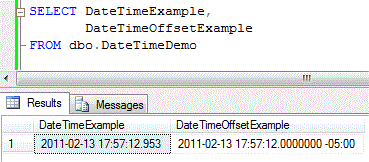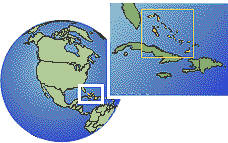How To Convert Date Now To Est Timezone In Vb.net
Hello, I created a forums when user write his post the time saved to the db as UTC datetime. When i show to the user the datetime of the post i should convert the UTC datetime to its localtime using the timezone of the browser. How to convert server time zone to local timezone using.NET. One of the questions we get all the time is how to change server time so it matches the time zone of the customer or users. Unfortunately, the answer is — you can’t. The web server can only run in one time zone, so the time is going to be “off” in the other 39 time zones. The correct way is to store the time in the local timezone. In this post we will see how to convert a DateTime object into specific TimeZone in C#. To do this, we will use the FindSystemTimeZoneById of TimeZoneInfo class. This function takes Id as a parameter to return the equivalent time in timezone passed.
-->Definition
Converts a time to the time in a particular time zone.
Overloads
| ConvertTime(DateTime, TimeZoneInfo)ConvertTime(DateTime, TimeZoneInfo)ConvertTime(DateTime, TimeZoneInfo) | Converts a time to the time in a particular time zone. |
| ConvertTime(DateTimeOffset, TimeZoneInfo)ConvertTime(DateTimeOffset, TimeZoneInfo)ConvertTime(DateTimeOffset, TimeZoneInfo) | Converts a time to the time in a particular time zone. |
| ConvertTime(DateTime, TimeZoneInfo, TimeZoneInfo)ConvertTime(DateTime, TimeZoneInfo, TimeZoneInfo)ConvertTime(DateTime, TimeZoneInfo, TimeZoneInfo) | Converts a time from one time zone to another. |
ConvertTime(DateTime, TimeZoneInfo)ConvertTime(DateTime, TimeZoneInfo)ConvertTime(DateTime, TimeZoneInfo)

Converts a time to the time in a particular time zone.
Parameters
- dateTime
- DateTimeDateTimeDateTime
The date and time to convert.
- destinationTimeZone
- TimeZoneInfoTimeZoneInfoTimeZoneInfo
The time zone to convert dateTime to.
Returns
The date and time in the destination time zone.
Exceptions
The value of the dateTime parameter represents an invalid time.
The value of the destinationTimeZone parameter is null.
Examples
The following example converts an array of date and time values to times in the Eastern Time zone of the U.S. and Canada. It shows that the source time zone depends on the DateTime.Kind property of the source DateTime value. It also illustrates that the ConvertTime method takes time zone adjustments into account, because a time zone adjustment occurs in both the source and destination time zones at 2:00 A.M. on November 7, 2010.
Remarks
When performing the conversion, the ConvertTime(DateTimeOffset, TimeZoneInfo) method applies any adjustment rules in effect in the destinationTimeZone time zone.
This overload of the ConvertTime(DateTime, TimeZoneInfo) method determines the source time zone from the value of the dateTime parameter's Kind property, as the following table shows.
| Kind property value | Source time zone | Method behavior |
|---|---|---|
| DateTimeKind.Local | Local | Converts the local time to the time in destinationTimeZone. |
| DateTimeKind.Utc | Utc | Converts Coordinated Universal Time (UTC) to the time in destinationTimeZone. |
| DateTimeKind.Unspecified | Assumed to be Local. | Converts the local time to the time in destinationTimeZone. |
The Kind property of the returned DateTime value is set as shown in the following table.
| Condition | Returned Kind property value |
|---|---|
The destinationTimeZone is TimeZoneInfo.Utc. | DateTimeKind.Utc |
The destinationTimeZone is TimeZoneInfo.Local. | DateTimeKind.Local |
| All other date and time values and destination time zones. | DateTimeKind.Unspecified |
If the value of the dateTime parameter is an ambiguous local time, it is interpreted as a standard time. If the dateTime parameter is an invalid local time, this method throws an ArgumentException.
If the conversion of dateTime results in a date and time value that is earlier than DateTime.MinValue or later than DateTime.MaxValue, this method returns DateTime.MinValue or DateTime.MaxValue, respectively.
You can also convert to or from UTC by calling the ConvertTimeFromUtc and ConvertTimeToUtc methods.
- See also
ConvertTime(DateTimeOffset, TimeZoneInfo)ConvertTime(DateTimeOffset, TimeZoneInfo)ConvertTime(DateTimeOffset, TimeZoneInfo)
Converts a time to the time in a particular time zone.
Parameters
- dateTimeOffset
- DateTimeOffsetDateTimeOffsetDateTimeOffset
The date and time to convert.
- destinationTimeZone
- TimeZoneInfoTimeZoneInfoTimeZoneInfo
The time zone to convert dateTime to.
Returns
The date and time in the destination time zone.
Exceptions
The value of the destinationTimeZone parameter is null.
Examples
The following example converts an array of DateTimeOffset values to times in the Eastern Time zone of the U.S. and Canada. It illustrates that the ConvertTime method takes time zone adjustments into account, because a time zone adjustment occurs in both the source and destination time zones at 2:00 A.M. on November 7, 2010.
Remarks
When performing the conversion, the ConvertTime(DateTimeOffset, TimeZoneInfo) method applies any adjustment rules in effect in the destinationTimeZone time zone.
This overload differs from the other overloads of the ConvertTime method by accepting a DateTimeOffset value as its first parameter. This identifies the date and time as an offset from Coordinated Universal Time (UTC) rather than as the date and time in a particular time zone. As a result, the dateTimeOffset parameter cannot represent either an ambiguous time or an invalid time.
In converting the dateTimeOffset value to the time in the destination time zone, this method takes into account any adjustment rules in effect in the destination time zone.
If the conversion of dateTimeOffset results in a date and time value that is earlier than DateTimeOffset.MinValue or later than DateTimeOffset.MaxValue, this method returns DateTimeOffset.MinValue or DateTimeOffset.MaxValue, respectively.
- See also
ConvertTime(DateTime, TimeZoneInfo, TimeZoneInfo)ConvertTime(DateTime, TimeZoneInfo, TimeZoneInfo)ConvertTime(DateTime, TimeZoneInfo, TimeZoneInfo)
Converts a time from one time zone to another.
Parameters
- dateTime
- DateTimeDateTimeDateTime
The date and time to convert.

- sourceTimeZone
- TimeZoneInfoTimeZoneInfoTimeZoneInfo
The time zone of dateTime.
- destinationTimeZone
- TimeZoneInfoTimeZoneInfoTimeZoneInfo
The time zone to convert dateTime to.
Returns
The date and time in the destination time zone that corresponds to the dateTime parameter in the source time zone.
Exceptions
The Kind property of the dateTime parameter is Local, but the sourceTimeZone parameter does not equal Local.
-or-
The Kind property of the dateTime parameter is Utc, but the sourceTimeZone parameter does not equal Utc.
-or-
The dateTime parameter is an invalid time (that is, it represents a time that does not exist because of a time zone's adjustment rules).
Add This Game to Your Site: Shooting Games Link to The Game: One Man Army 2One Man Army 2,File Size: 911.72 Kb, Rating: 75.48% with 493 votes, Played: 44,222 times from August-30th-2012Description: Taking refuge in a nearby city, your mission now is to stay alive.Control: Shoot and aim with your mouse. One man army games free download for pc full version.
The sourceTimeZone parameter is null.
-or-
The destinationTimeZone parameter is null.
Examples
The following example illustrates the use of the ConvertTime(DateTime, TimeZoneInfo, TimeZoneInfo) method to convert from Hawaiian Standard Time to local time.
Remarks
When performing the conversion, the ConvertTime method applies any adjustment rules in effect in the destinationTimeZone time zone.
The value of the Kind property of the dateTime parameter must correspond to the sourceTimeZone parameter, as the following table shows.
| DateTime.Kind value | sourceTimeZone value | Method behavior |
|---|---|---|
| DateTimeKind.Utc | Equals TimeZoneInfo.Utc. | Converts dateTime to the destination time zone's time. |
| DateTimeKind.Utc | Does not equal TimeZoneInfo.Utc. | Throws an ArgumentException. |
| DateTimeKind.Local | Equals TimeZoneInfo.Local. | Converts dateTime to the destination time zone's time. |
| DateTimeKind.Local | Does not equal TimeZoneInfo.Local. | Throws an ArgumentException. |
| DateTimeKind.Unspecified | Any. | Converts dateTime to the destination time zone's time. |
You can also convert to or from Coordinated Universal Time (UTC) by calling the ConvertTimeFromUtc and ConvertTimeToUtc methods.
The Kind property of the returned DateTime value is set as shown in the following table.
| Condition | Returned Kind property value |
|---|---|
The destinationTimeZone argument is TimeZoneInfo.Utc. | DateTimeKind.Utc |
The destinationTimeZone argument is TimeZoneInfo.Local. | DateTimeKind.Local |
| All other date and time values, source time zones, and destination time zones. | DateTimeKind.Unspecified |
If the value of the dateTime parameter is an ambiguous time in the source time zone, it is interpreted as a standard time. If the dateTime parameter is an invalid time in the source time zone, this method throws an ArgumentException.
If the conversion of dateTime results in a date and time value that is earlier than DateTime.MinValue or later than DateTime.MaxValue, this method returns DateTime.MinValue or DateTime.MaxValue, respectively.
The ConvertTime(DateTime, TimeZoneInfo, TimeZoneInfo) method throws an ArgumentException exception if the DateTime.Kind property of the dateTime argument is DateTimeKind.Local but the sourceTimeZone argument is not TimeZoneInfo.Local. To determine whether the source time zone is the local time zone or the universal time zone, the method tests for reference equality instead of testing for value equality with the Equals(TimeZoneInfo) method. Note that TimeZoneInfo objects that represent the local time zone and that are retrieved by calling the FindSystemTimeZoneById method do not have referential equality with TimeZoneInfo.Local. Furthermore, TimeZoneInfo objects that represent the local or universal time zone and that are retrieved by iterating the collection returned by the GetSystemTimeZones method do not have referential equality with TimeZoneInfo.Local or TimeZoneInfo.Utc. As an alternative, you can call the ConvertTimeBySystemTimeZoneId(DateTime, String, String) method.
How To Convert Date Now To Est Time Zone In Vb.net
Applies to
I have a UTC DateTime value coming from a database record. I also have a user-specified time zone (an instance of TimeZoneInfo). How do I convert that UTC DateTime to the user's local time zone? Also, how do I determine if the user-specified time zone is currently observing DST? I'm using .NET 3.5.
Thanks,Mark
Mark RichmanMark Richman5 Answers
Have a look at the DateTimeOffset structure:
For DST see the TimeZoneInfo.IsDaylightSavingTime method.
dtbdtbThe best way to do this is simply to use TimeZoneInfo.ConvertTimeFromUtc.
The only catch is that the incoming DateTime value may not have the DateTimeKind.Local kind. It must either be Utc, or Unspecified.
You can use a dedicated function within TimeZoneInfo if you want to convert a DateTimeOffset into another DateTimeOffset:
Boris SchegolevThe Antartica answer only works for the timezones matching UTC. I'm quite traumatized with this DateTimeOffset function and after hours of trial and error, I've managed to produce a practical conversion extension function that works with all timezones.
Example:
Anuj Balan